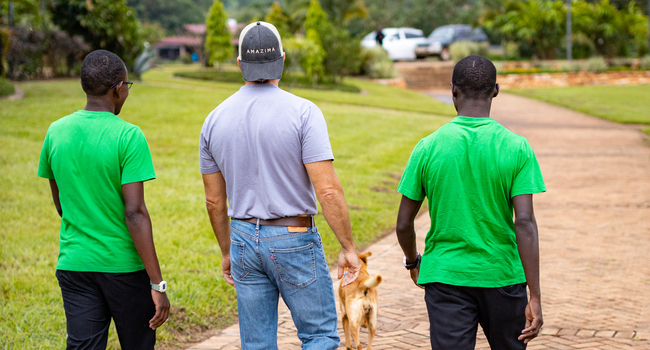
Sign Up for Updates
Connect
TOPICS
- Latest Blog
- Fiction
- Inspirational/Devotional
- Men's Christian Living
- Prophecy
- Women's Christian Living
- View All
ARCHIVES
When Helping Helps–Strategies for Ending Poverty in Uganda and Beyond
Posted on Aug 08, 2023 Topic : Inspirational/Devotional, Men's Christian Living, Women's Christian Living
Posted by : Kelly Miller

After spending five years in Uganda as the Dean of Students at a unique boarding school in Jinja, Uganda, I have come to believe that education, at least in developing countries, is often NOT the final answer to poverty. In my experience, most of the schools where sponsored children attend are subject to rote memorization for learning and in secondary schools, the students can be in a classroom thirteen or fourteen hours a day. The eventual outcome, after sixteen years of being in school, is a mostly worthless certificate that affords little to no opportunity. The sad reality is that only a small percentage of secondary school graduates go on to further education. It’s no wonder that the cycle of poverty has seen little change even as the amount of schools and sponsored children has steadily grown.
In my opinion, the broader education system in Uganda (and other developing countries) actually contributes to poverty because the environment in most of the schools further erodes the child’s dignity and significantly limits their ability to see themselves as valuable. For meaningful change to occur, things must change in our approach. Fortunately, the obvious mistakes to avoid and the fundamental and wise steps to take are known and available to anyone who would seek to understand.
Even though the quality of the schools are less than optimal, the groups who sponsor the children should not be viewed negatively. Child sponsorship organizations meet an urgent need in humble Ugandan communities by coming alongside families to provide the assistance needed for children to go to school. To be clear, without the critical efforts of these ministries and NGOs, most children from hard places in Uganda would not go to school.
If we desire to be part of the solution, we mustn't look at poverty primarily in material terms, but instead, we must first focus on the issue of human identity and dignity, as all people are made in the image of God. If you want to actually help affect change in these schools, focus on the identity and dignity of the person; don’t just give them the material things or resources you think they need. Of course, this is easier said than done.
It takes work to learn how to help people grow to a dignified identity, which is needed for climbing out of material poverty. Of course, the easier (and more common) path is to just sit back and judge the work of others, send a check, and move on, or at worst, leave it for government programs.
In my experience, most of the “help” offered to people in material need has failed to guide them out of poverty. This doesn’t mean the money and hours spent addressing material needs are not important. They are. I’m also not advocating for less effort or passing judgment on the motivations of others. What I’m saying is that we can do better, and we can see more effective, transformational outcomes.
At our school, we built the Student Life program around leading our students to know their inherent value, being made in the image of God. In support of this idea, we fashioned an environment of safety where trusted relationships are built and discipleship can flourish. In addition, we invited the families of our students to actively participate in the education of their children. As with our students, the starting point with our families is helping them to understand their dignity and how important they are to us, their children, and most importantly, to God.
It’s a long process for sure and one for which patience is critically important. For there to be any chance to see the outcomes we all desire, dignity and value are mandatory building blocks. Following this strategy in Uganda, I have seen a quantity and degree of success beyond any expectations.
Be encouraged! When you take the time to lead people to know their God-given value and that they matter, regardless of their circumstances, you also create an environment for transformation and confidence. At that point, your good ideas about how to help them may, well, actually help.
“Let us not become weary in doing good, for at the proper time we will reap a harvest if we do not give up.” Galatians 6:9

Read more in Unexpected Joy by Kelly Miller

